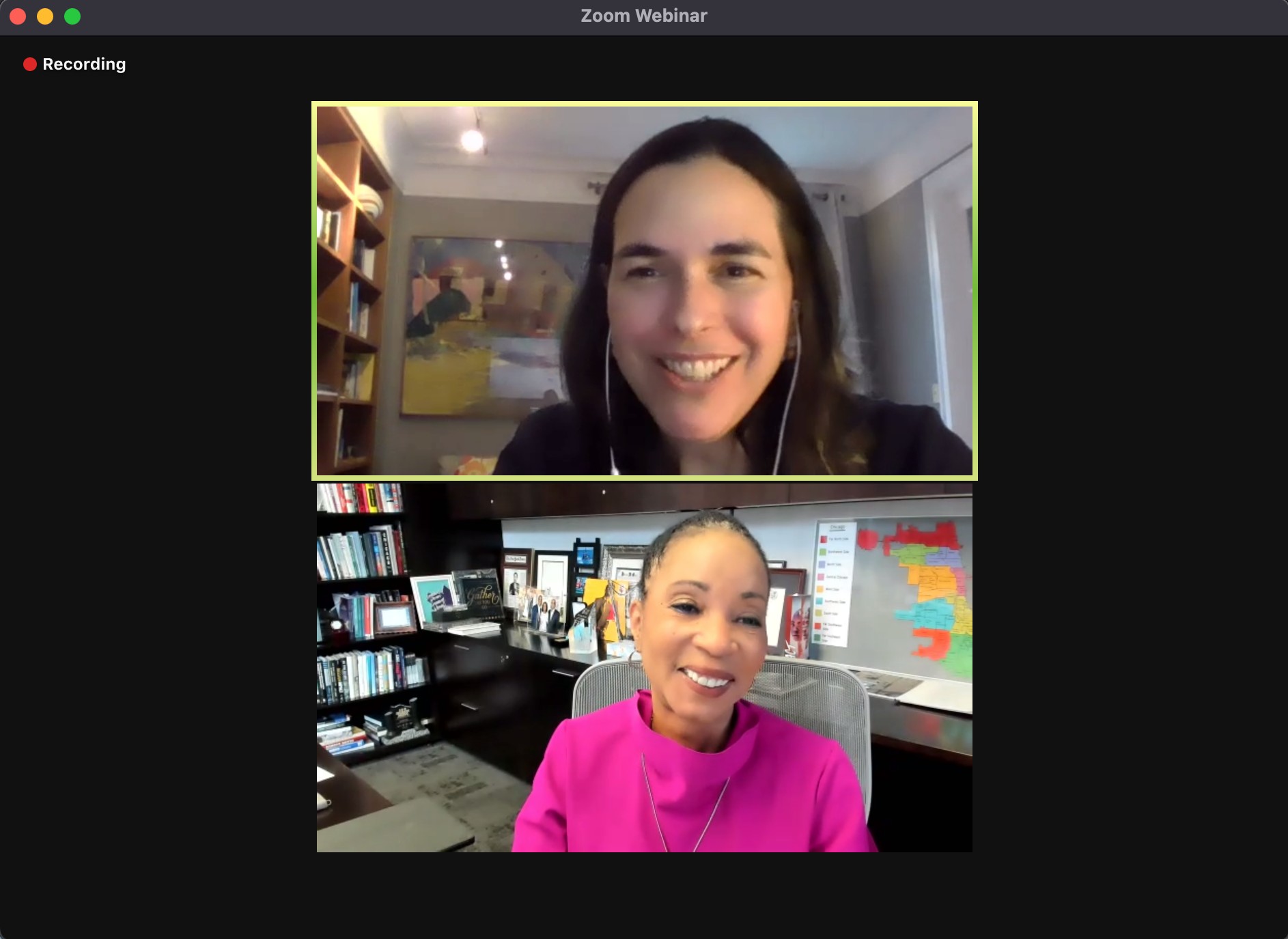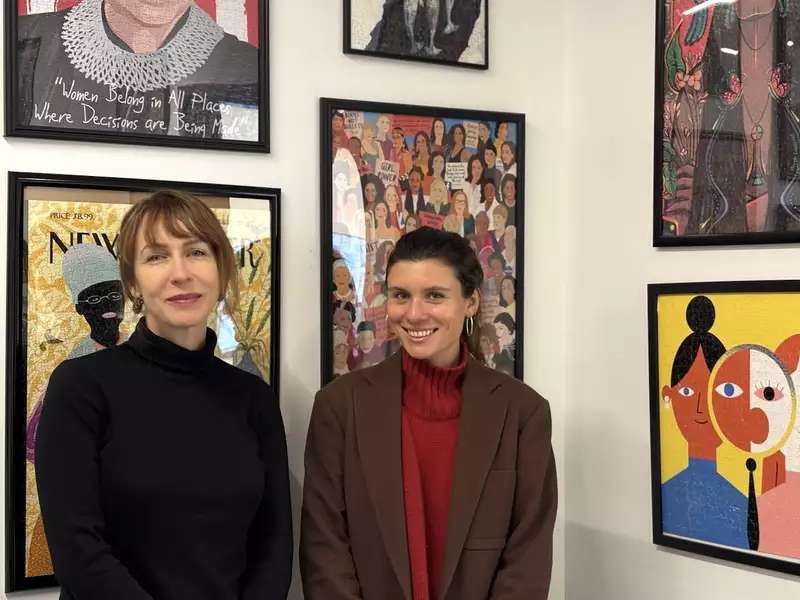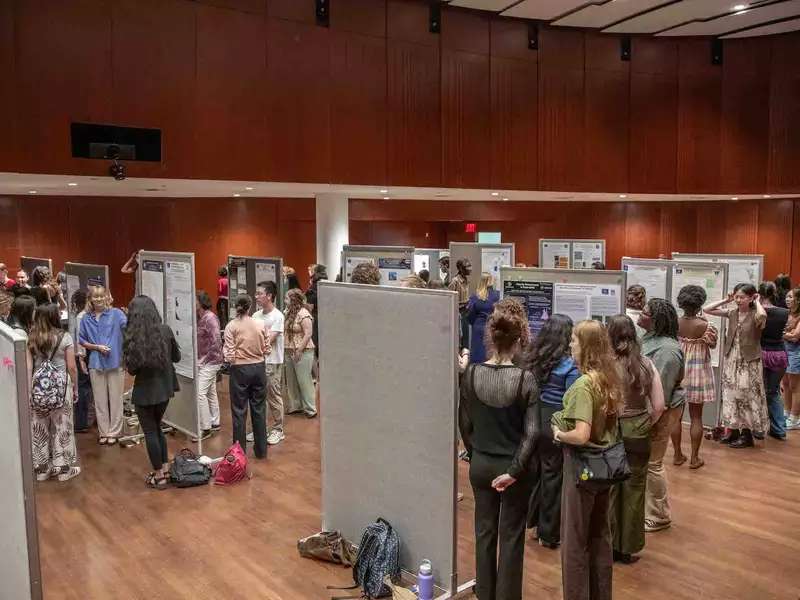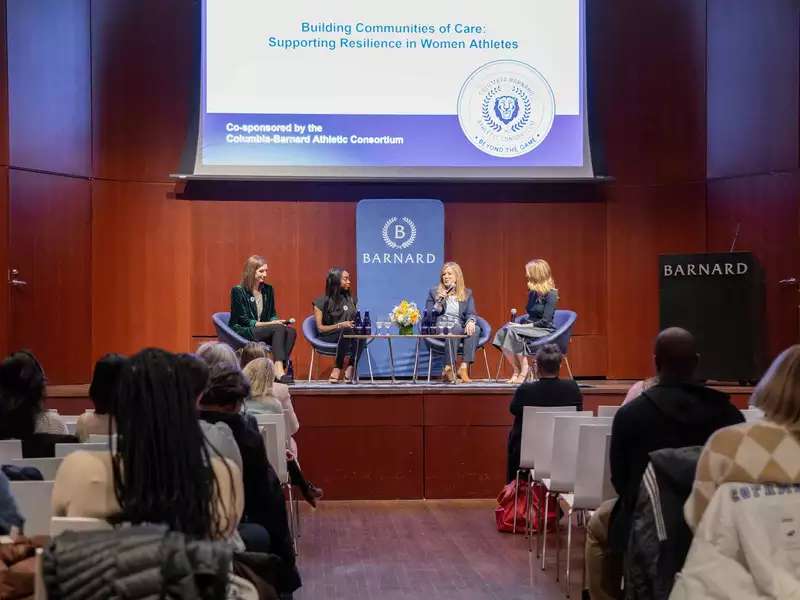If we put equity at the heart of our response — public health, economic, social — that is when we start to really figure out how we can make a society that works for all.
For Helene D. Gayle ’76, whose career has merged medicine, economics, and social justice, the COVID-19 pandemic “makes me feel like I’m at the right place at the right time.” As the global health crisis has exposed long-standing issues of inequality in the United States, Gayle’s current role as the president and CEO of the Chicago Community Trust (CCT), has positioned her well to tackle today’s issues head-on.
On May 20, Gayle joined President Sian Leah Beilock in conversation for an exclusive online event, presented by Beyond Barnard, to discuss the importance of equity, the need for more preventative medical care, and how Barnard influenced Gayle’s career path.
Since joining the CCT, one of the nation’s oldest community foundations, in 2017, Gayle has led the launch of a 10-year strategic plan aimed at closing the racial and ethnic wealth gap in the Chicago region, with a three-pronged approach to grow household wealth, catalyze neighborhood investment, and build collective power.
Before the CCT, she spent 20 years with the Centers for Disease Control and Prevention, where she focused on HIV/AIDS. She also worked at the Bill & Melinda Gates Foundation, the McKinsey Social Initiative, and the international humanitarian organization CARE, where she led efforts to empower girls and women around the world and bring lasting change to underserved communities. She holds an M.D. from the University of Pennsylvania School of Medicine and a master’s in public health from the Johns Hopkins University School of Hygiene and Public Health.
Read key insights from the conversation with Gayle below:
On how “equity must be our guide”:
Helene D. Gayle: “When you look at something like a pandemic that disproportionately impacts people of color, or poor nations globally — if we’re going to have an impact, whether it’s on COVID, or anything else — equity does have to be at the center, because it is the only way that we’re going to have a sustained impact on these issues. If we put equity at the heart of our response — public health, economic, social — that is when we start to really figure out how we can make a society that works for all. [It] ends up being not only the right thing to do but the smart thing to do if we really want to solve the problem.”
On how Barnard impacted her career trajectory:
“I would not be who I am today if it had not been for Barnard. The fact that I was exposed to students from all over the world, the fact that I was exposed to students who had very high expectations of their professional future — it stretched me in many ways, and it widened my aperture both in terms of my own professional aspirations, as well as understanding the world and being exposed to broad cultures and being exposed to New York City and the culture and the craziness of it all. It really did open my eyes in many ways to things that allowed me to think differently and think larger about what was possible in life.”
On the lasting lessons learned as president of the Barnard Organization of Soul Sisters:
“It was a wonderful experience. It was so important to have that support network, to have that sense of home, that sense of people who you could relate to, who had cultural and political similarities, that gave you that sense of belonging. I learned a lot of great skills of negotiation, consensus building, how you build relationships, and how you bring groups to consensus and to negotiate and learn to compromise: a lot of the skills that continue to serve me well in management roles that I’ve had. It’s so easy for people to brush off the importance of these identity groups, but I think it can be a base that then helps you to bridge the differences, because if you feel strong and supported in who you are, and in your identity, that makes you more secure, not less secure, to be able to then enter into dialogue with others.”
On the importance of bolstering preventative medicine:
“One of the big lessons from both [COVID and the AIDS crisis] is that we are so much better about treating things once they have already occurred, and we don’t think enough about prevention. People have been saying for years now that the next pandemic is going to come, and it’s going to be worse than what we saw before. And we did not prepare ourselves for this pandemic, similar to how we did not prepare ourselves for HIV. We spend more on healthcare than any other industrialized nation, but our health outcomes are worse, and it’s because we put so much of our focus on treatment, on sophisticated technology, and we also put a lot more of our focus on the last few years of life. We don’t put [that] kind of focus on prevention earlier in life. I hope that we’ve learned our lesson that preparedness and prevention really do save us. And if we really want to be resilient and ready for the next time [a health crisis] strikes, we will think more about how to look at prevention and not wait until something is a problem to then put a focus on it.”
On how the wealth gap underlies other social issues:
“When I came [to the CCT], we were organized like many foundations are traditionally: We had a health program, we had an education program, an arts program, etc. But we said, ‘Let’s step back and think about what the biggest issues are here in the Chicago region and how we can have the greatest impact.’ As we looked at it, it was very clear that whether or not we were talking about the health and life expectancy gap, or the education gap, or crime, violence, public safety, all the issues that are key challenges here — lack of economic opportunity is at the root of so many of these causes. For instance, Chicago has one of the largest life expectancy gaps of any city. If you look at what the causes of that are, access to health plays a role, but what really plays a role is lack of economic opportunity, lack of access to nutritious diets, lack of access to high quality education, and on and on. It’s what we call the social determinants of health. We put so much focus on medical care, but we know that medical care probably only accounts for about twenty percent of health disparities. Eighty percent of what really differentiates people’s health status are these social determinants. So the most attention is put on the things that give us the least return. At CCT, we said, ‘let's really focus our attention and prioritize closing the racial and ethnic wealth gap.’”
*Responses have been edited for length and clarity.
Watch the full conversation between Gayle and Beilock below:



